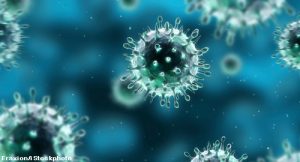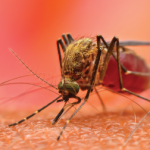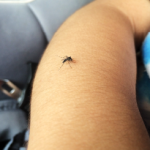 Along with the rise in temperatures across the globe, doctors have also seen an increase in the number of chikungunya cases, a viral disease spread through mosquito bites that can lead to severe joint pain. Little research has been conducted on how long the virus continues to cause arthritis-like symptoms after the initial infection.
Along with the rise in temperatures across the globe, doctors have also seen an increase in the number of chikungunya cases, a viral disease spread through mosquito bites that can lead to severe joint pain. Little research has been conducted on how long the virus continues to cause arthritis-like symptoms after the initial infection.
A study, published in the August 2020 issue of The Journal of Rheumatology, found one out of eight patients continue to experience classic joint pain up to three years after being infected with the chikungunya virus (CHIKV).1
“Our study marks the longest time a cohort of patients, infected with the CHIKV virus, has been followed,” says Aileen Y. Chang, MD, MSPH, assistant professor of medicine at the George Washington University, Washington, D.C. “Several studies have followed patients for a shorter duration and found symptoms, such as fever and joint pain, lasted for several weeks or months. Our study found, in some patients, the virus may cause severe joint pain that lasts for years.”
As part of their study, Dr. Chang and her colleagues conducted a cross-sectional, follow-up of 120 patients from an initial cohort of 500 patients who reported joint pain two years after infection with CHIKV in Colombia. Patients were diagnosed with CHIKV during the 2014–15 epidemic, and baseline and follow-up symptoms at 40 months were evaluated in serologically confirmed cases.
Dr. Chang says infected patients in the Latin American cohort reported fever and joint pain in their knees, hands, toes and elbows. A quarter of the patients reported no signs of joint pain prior to being infected by the virus.
According to the Centers for Disease Control & Prevention (CDC), outbreaks of the virus have occurred in Africa, Asia, East Europe and near the Indian and Pacific oceans. The CDC notes that chikungunya was found in late 2013 for the first time in the Americas, on islands in the Caribbean.2 Since 2017, there have been more than a million cases reported in the Americas.
“Although there have long been cases of [chikungunya] found in Americans who travel outside the U.S. to locations where the virus has been reported, we’ve also seen an increase in the number of [chikungunya] cases in Florida and the U.S. Virgin Islands,” Dr. Chang says.
In a previous cohort study, Dr. Chang and her colleagues found 485 of 500 patients had serologically confirmed chikungunya and reported joint pain. The most commonly affected joints were the small joints, including the wrists, ankles and fingers.3

